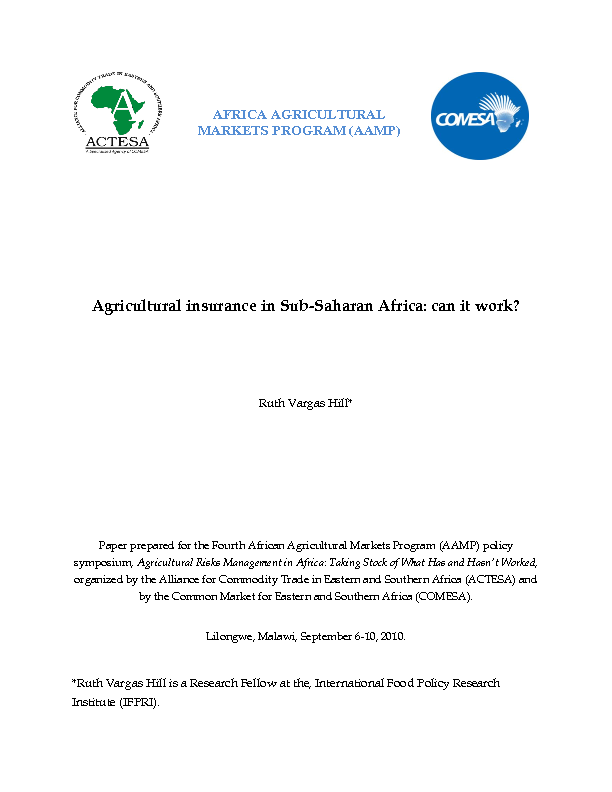Agricultural insurance in Sub-Saharan Africa: Can it work?

Risk characterizes life for many of the world’s poorest households. They are more likely to be located in environments where livelihoods are highly susceptible to weather and price variability and where health risks are pervasive. When these risks are uninsured, they not only reduce the current welfare of poor rural households, but also threaten future income growth and thus perpetuate poverty. Reducing the risks faced by poor households, and enabling poor households to better deal with bad events when they do occur, is essential to improving their welfare in the short run and their opportunities for income growth in the long run. This note draws on the briefs published in the IFPRI’s 2020 Focus “Innovations in Insuring the Poor” and other work, to examine the potential for agricultural insurance, and in particular index insurance, as a risk management tool for rural households in sub-Saharan Africa.
